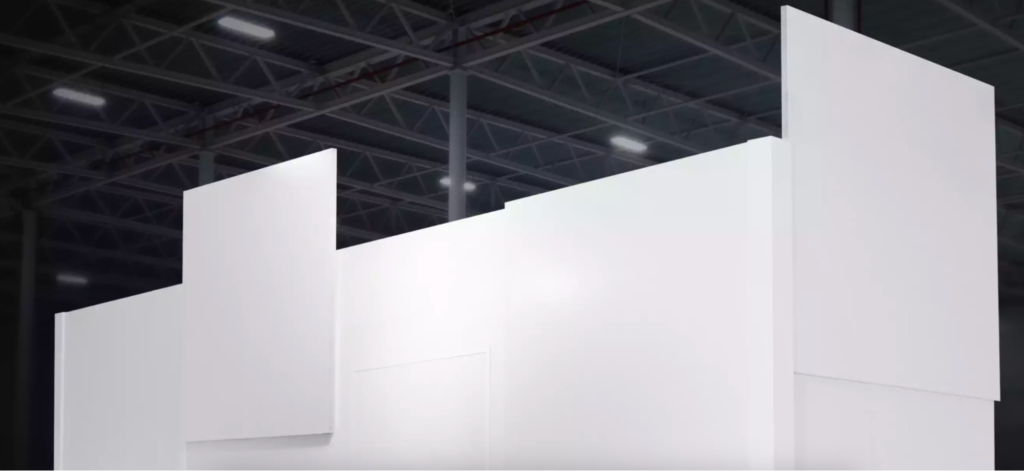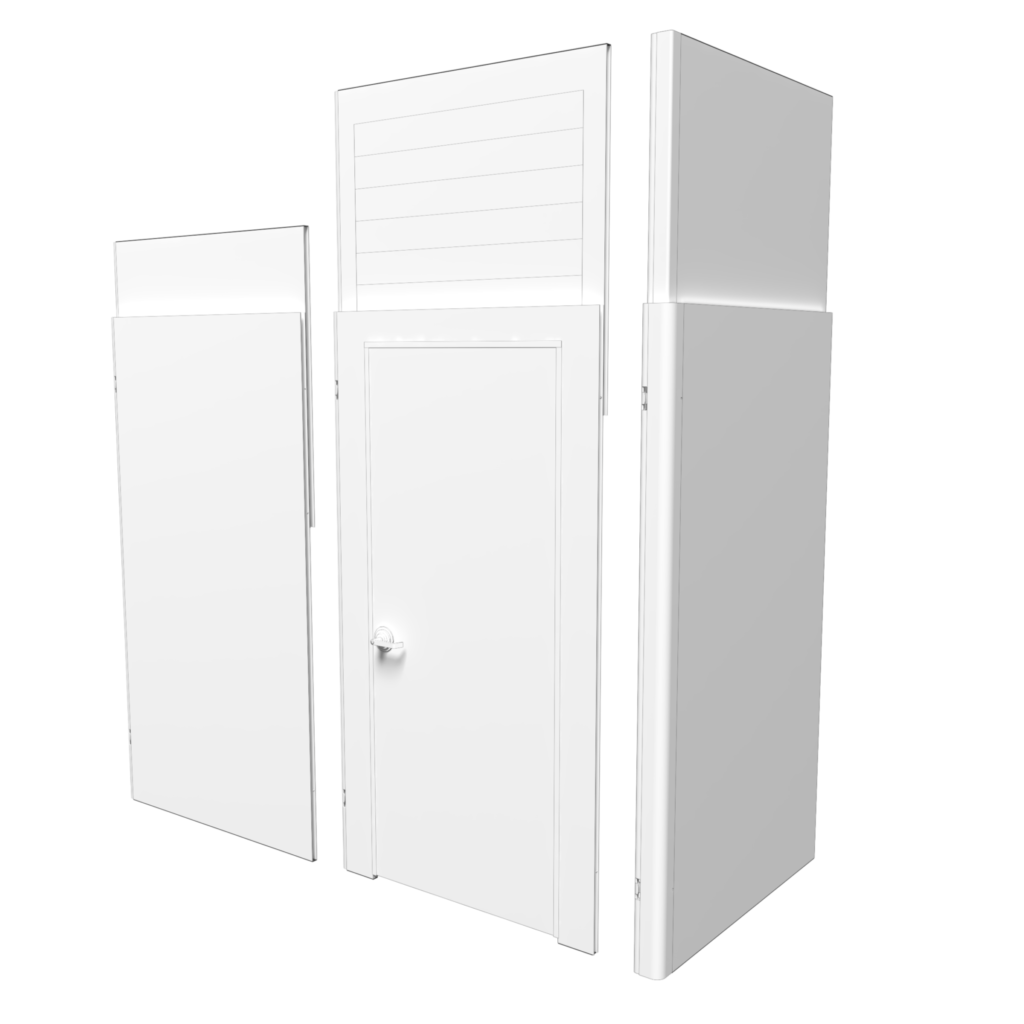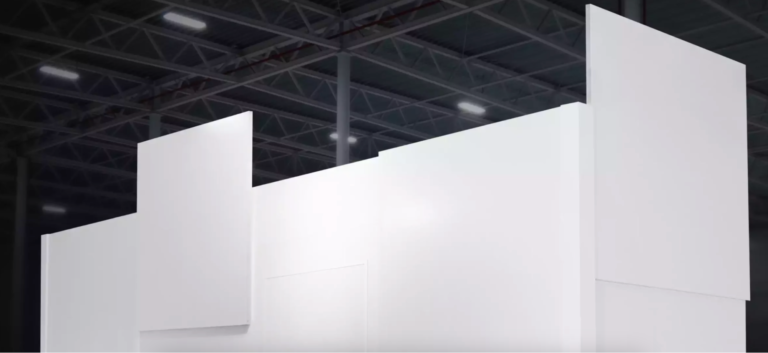In healthcare construction, Infection Control Risk Assessment (ICRA) is essential for patient safety and infection prevention. This guide explores the process of ICRA, and it highlights the importance of temporary walls in maintaining infection control standards. In particular, we will look at how SwiftWall Flex can improve your ICRA outcomes to help ensure safety in healthcare construction projects.
What Are Temporary Walls and Partitions?
Temporary walls and partitions provide notable benefits compared to traditional stick-built temp walls, especially in rapidly changing construction settings such as hospitals and other healthcare facilities.
The main benefits include:
- Speed of Installation: Can be installed much faster than drywall and 2×4 walls to disruption of ongoing operations
- Flexibility: Can be easily reconfigured or relocated to suit changing needs
- Cost-Effectiveness: Lower labor and material costs make them an economically sound choice for budget-conscious projects in the long-run
- Minimal Impact: Leaves little to no impact on existing structures to preserve the integrity of the space while providing necessary partitioning.
The Critical Role of Temporary Walls in ICRA Compliance
In the healthcare construction industry, temporary walls are crucial for ensuring safety and hygiene standards. They go beyond being structural elements; they play a vital role in Infection Control Risk Assessment protocols. SwiftWall Flex, with its airtight advantages, exemplifies how temporary walls can transform ICRA implementation.

When is an ICRA Required?
An Infection Control Risk Assessment becomes mandatory in scenarios where construction, remodeling, or maintenance activities might generate dust or alter environmental conditions that heighten the potential for health risks and infection spread. This requirement is particularly pertinent in instances where building systems undergo significant changes or replacements.
Key situations that trigger the need for an ICRA include activities that disturb water or air handling systems, generate dust through demolition or building processes, disrupt the normal flow of patients and healthcare providers, or involve the replacement of surface materials and fixtures.
Understanding ICRA in Construction
ICRA is a systematic approach used in healthcare construction to prevent the spread of infections. It involves several steps including:
- Identifying the type of construction (ranging from non-invasive activities to major construction)
- Determining the patient risk group (low to highest)
- Selecting the appropriate class of precautions (Classes I to V)
Why ICRA Matters
ICRA is vital for maintaining a sterile environment in healthcare facilities, especially during construction or renovation. This process ensures that the health and safety of patients, staff, and visitors are not compromised. It involves specific measures like:
- Establishing containment zones
- Using personal protective equipment (PPE)
- Developing communication plans to inform all stakeholders of potential risks
Comprehensive Steps for ICRA Implementation
1. Comprehensive Risk Analysis
This initial step involves a detailed assessment of potential risks to both the patient population and the surrounding areas. Understanding the specific challenges of each construction project is crucial to tailoring ICRA strategies effectively.
2. Robust Incident Response Mechanism
Establishing a well-defined protocol for reporting and responding to any infection control breaches is essential. This approach ensures immediate action and minimizes the impact of any such incidents.
3. In-Depth Training Programs
A crucial aspect of ICRA is educating both construction workers and healthcare staff about the importance and application of ICRA guidelines. This training ensures that all involved parties are equipped with the knowledge to uphold ICRA standards.
4. Efficient Traffic Management
Implementing clear and effective signage, along with controlled movement protocols within construction zones, is vital. This step ensures the safety of all individuals moving through or around the construction area.
5. Selection of Appropriate ICRA Barriers
Choosing the right type of barriers or temporary walls, like SwiftWall Flex, is critical. The selection depends on the class of precautions required for the project and it plays a significant role in containing potential contaminants.
6. Implementation of Additional Containment Measures
For higher-risk projects, implementing additional containment strategies like negative air pressure systems and HEPA filtration is crucial. These measures provide an added layer of protection against the spread of infections.
7. Effective Waste Management
Proper disposal of construction debris and waste is imperative to prevent cross-contamination. This involves setting up and adhering to protocols that align with ICRA guidelines.
8. Noise and Vibration Mitigation
Recognizing and controlling construction-induced noise and vibrations is important, especially in sensitive healthcare environments. This step aims to minimize disruptions and maintain a conducive healing environment for patients.
9. Ongoing Monitoring and Surveillance
Regular inspections and assessments are necessary to ensure the effectiveness of the implemented ICRA measures. Continuous monitoring helps in identifying areas for improvement and ensuring compliance with ICRA standards.
The Role of Temporary Walls in ICRA
Temporary walls are an integral component of the ICRA process in healthcare construction. They offer several advantages, such as:
- Containment of dust and pathogens
- Flexibility and adaptability to different spaces
- Reusability and cost-effectiveness
- Sound reduction and minimal disturbance
SwiftWall Flex: The Top Solution for Meeting ICRA Standards

SwiftWall Flex stands out as an exceptional solution for meeting ICRA standards in healthcare construction. This innovative modular wall system is designed for efficiency and safety, with several notable features:
- Adjustable Height: Ranges from 7’6″ to 12’3″ feet to eliminate the need for cutting
- Frameless Design: Offers a finished wall appearance
- Easy Maintenance: Features a non-microbial surface that is simple to clean
- Quick Installation: Can be installed five times faster than traditional methods
- ICRA Class V Compliant: Meets the highest infection control standards with negative air capabilities
- Versatile and Durable: Ideal for rapid reconfiguration in healthcare construction environments
Beyond ICRA: Additional Benefits of Temporary Walls
Temporary walls play a critical role in ICRA and they can provide various other benefits including increased patient privacy, improved aesthetics of the construction site, and the ability to create modular spaces that can be easily reconfigured to meet the evolving needs of the healthcare facility.
Improving ICRA Results
To enhance ICRA outcomes in construction, it is crucial to prioritize continuous training, implement advanced containment technologies, and cultivate a safety and compliance culture within the construction and healthcare teams.
Safety First: Choose SwiftWall for Your Next ICRA Project
Ensure the safety and success of your next ICRA construction project by choosing SwiftWall. Our temporary wall systems, such as SwiftWall Flex, provide exceptional containment, adaptability, and efficiency by meeting and exceeding ICRA standards. Don’t compromise on the health and well-being of patients, staff, and visitors.
Contact us today and speak with one of our professionals!

